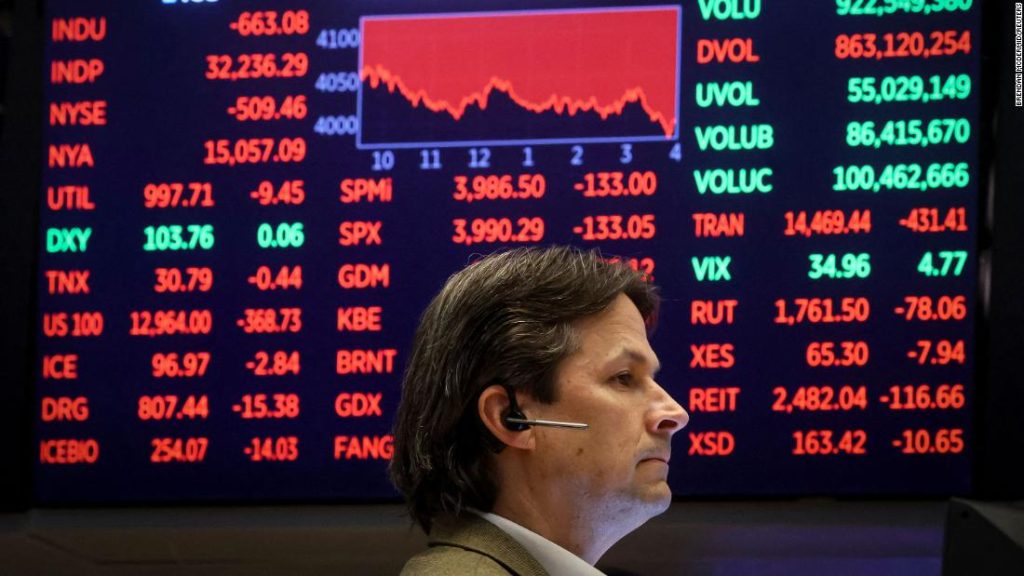4 reasons the economy looks like it’s crumbling — and what to do about it

Pretty much anyone who wants a job can have one. The economy is so hot that The problem is the Fed was super-duper late to raising rates. Inflation was a growing concern throughout 2021, but the central bank only began hiking rates in March 2022. So the Fed needs to play catchup — and take far more drastic action than it would if it had started raising rates last year.Last week the Fed raised rates by a half-percentage point, the After hitting record highs in early January, the stock market has lost nearly a fifth of its value — plunging stocks near bear-market territory. The Nasdaq (That typically happens when the Fed hikes rates — the higher cost of borrowing makes the bonds less valuable when they mature, so a higher interest payment on the bonds (the yield) will help compensate and make them more attractive to investors.Bonds have also sold off as the Fed has decided to unwind its massive portfolio of Treasuries that it had been purchasing since the pandemic to shore up the economy. As bonds sold off and investors grew more fearful of an economic downturn, the gap between short-term and long-term bond yields has been shrinking. Yields on the two-year Treasury note briefly rose above those on the benchmark 10-year note in March for the first time since September 2019. That so-called yield curve inversion has preceded every recession since 1955, producing a “false positive” just one time, according to the Federal Reserve Bank of San Francisco.Sign 4. Chaos around the globeNone of this is happening in a vacuum. Russia continues its deadly invasion of Ukraine, which has choked off supply chains and sent energy prices through the roof. China continues to lock down some of its biggest cities as Covid cases remain high. And a labor shortage has sent salaries surging and hindered the normal flow of goods around the world.Russia continues to threaten European countries by shutting off their energy shipments, which could plunge EU economies into a recession. China’s economy has slowed dramatically as it keeps workers home as part of its zero-Covid policy. What happens abroad could spill over to the United States, too, hurting America’s economy at the worst possible time.What to doOK, so a recession could be coming soon. Here’s what not to do: Panic.Even if a recession is inevitable, there’s no telling how severe it will be. But it never hurts to plan for the worst. Here are a few ways financial advisers say you can insulate your finances from a downturn.Lock in a new job now: With ultra-low unemployment and plenty of openings, it’s a job seeker’s market. That could change quickly in a recession.Cash in on the housing boom: If you’ve been on the fence about selling your home, now may be the time to list. Home prices in the United States are up nearly 20% year over year, but mortgage rates are also rising, which will eventually curb demand.Set some cash aside: It’s always a good idea to have liquid assets — cash, money market funds, etc — to cover urgent needs or unexpected emergencies.Finally, some sage advice for any market: Don’t let your emotions get the better of you. “Stay invested, stay disciplined,” says certified financial planner Mari Adam. “History shows that what people — or even experts — think about the market is usually wrong. The best way to meet your long-term goals is just stay invested and stick to your allocation.”— CNN Business’ Allison Morrow and Jeanne Sahadi contributed to this report.







